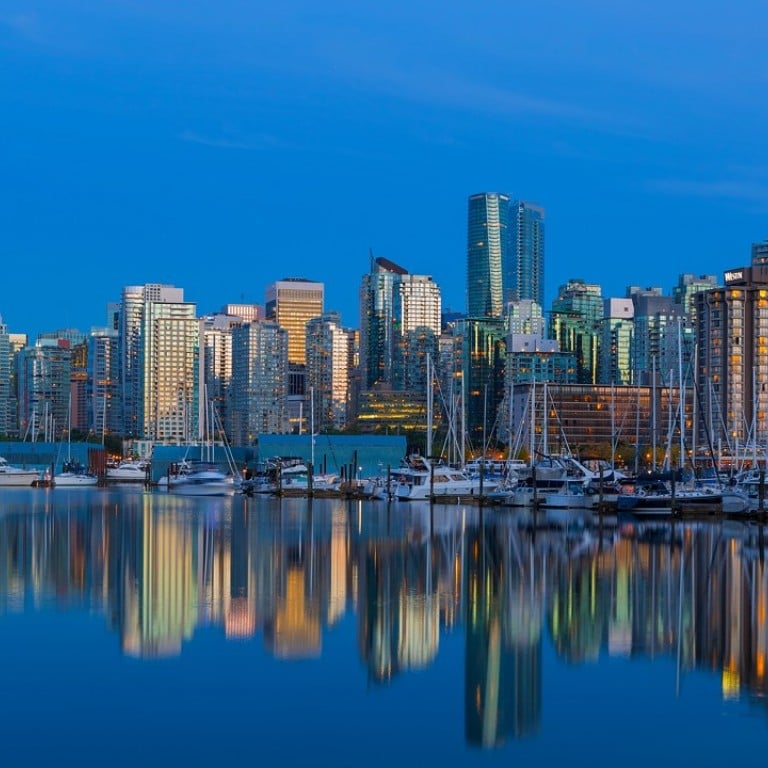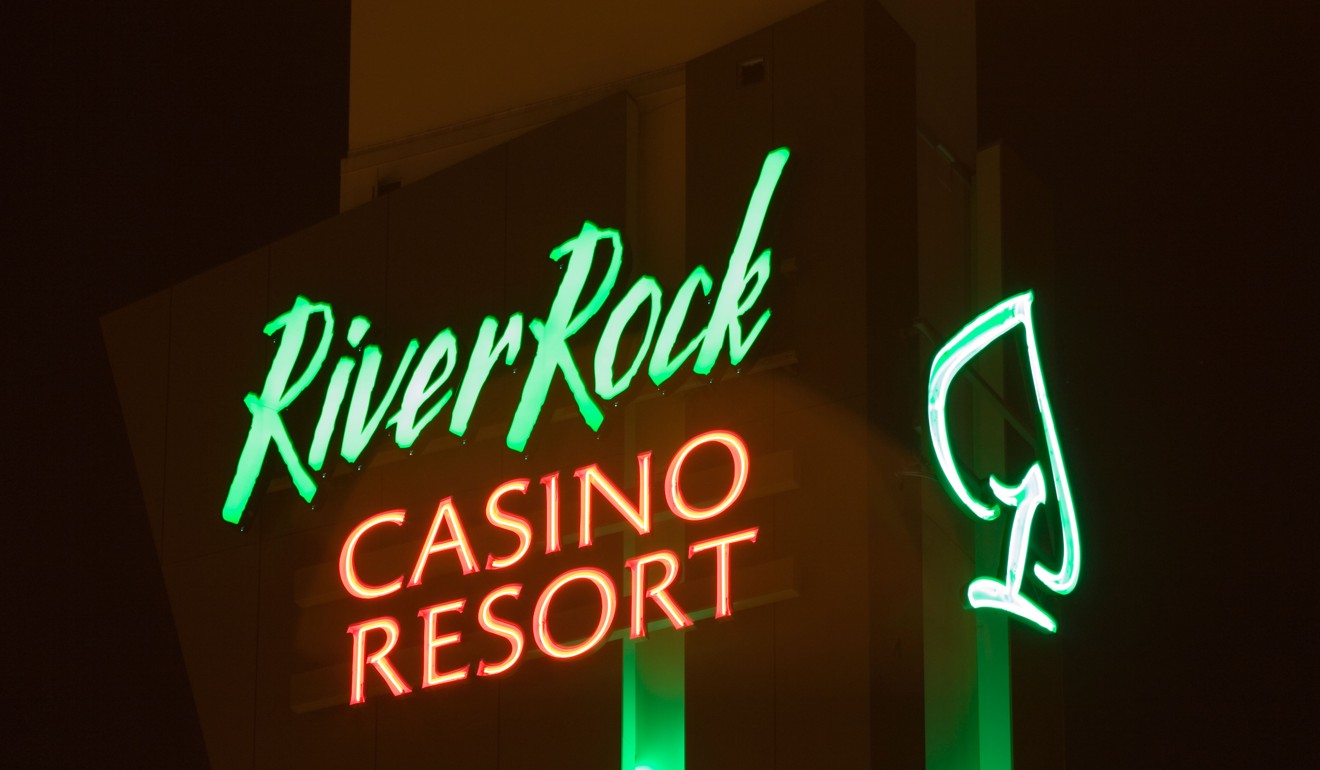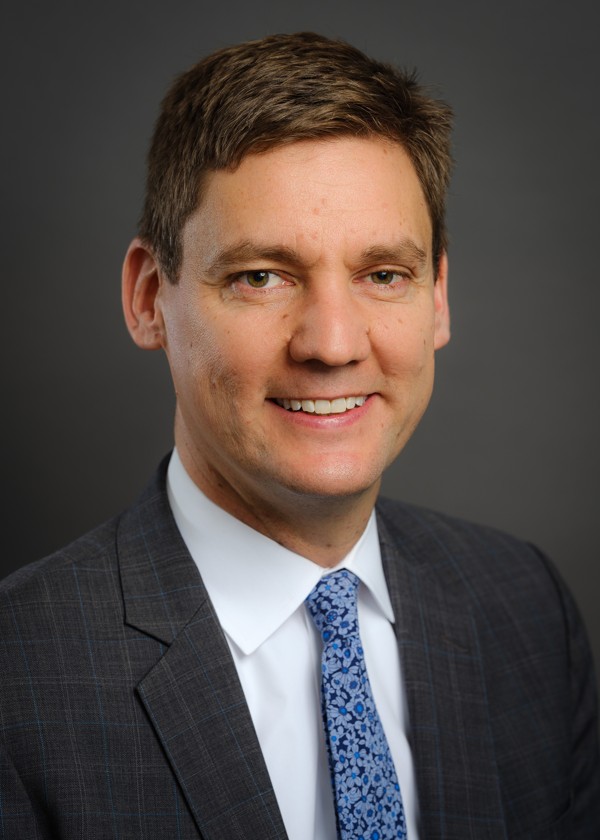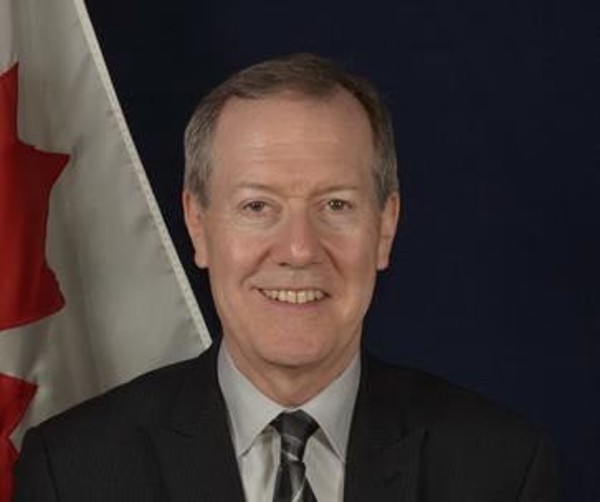
Canada’s casinos used by criminal gangs, wealthy Chinese to launder over US$75 million
Expert links ‘the Vancouver model’ – as the money-laundering scheme has come to be known – with British Columbia’s opioid crisis and unaffordable property market
The briefing took place just a few days after David Eby began his new job as British Columbia’s attorney general – and it began with a warning. “Get ready,” Eby remembers being told by casino regulators in the western Canadian province. “I think we are going to blow your mind.”
What they showed him was footage of individuals wheeling suitcases stuffed with C$20 (US$15) bills into casinos. Others used hockey bags to haul the cash. Surveillance videos then showed the individuals trading in the cash for casino chips.
Hong Kong, Macau ‘pivotal’ players in racket using Canadian casinos
It was Eby’s first glimpse of what some in the global intelligence community had taken to calling the Vancouver model – a scheme in which some of the province’s casinos were unwittingly used to launder more than C$100 million during the past decade.
“We are famous internationally – or, more accurately, we have become infamous – for money laundering,” Eby told a federal parliamentary committee earlier this year.
“It’s just mind boggling,” Eby says in an interview. “The sheer volume and the size of these transactions on a regular basis in casinos is just astounding.”
Soon after that first, eye-opening briefing in 2017, Eby’s government introduced measures aimed at curbing the transnational scheme; demanding proof of a legitimate source for casino payments of more than C$10,000 and round-the-clock surveillance by regulators at high-risk establishments.
These efforts have sent suspicious transactions at casinos plummeting since 2015, according to government estimates.
Still, the impact of this cash flow – much of it linked to criminal organisations – is believed to have been felt across the province. “I can tell you it is tied to the opioid crisis that has taken thousands of people from their families,” says Eby. “It’s linked to the real estate market and housing prices that have made life unaffordable for British Columbians.”

Before travelling to Canada, ostensibly to gamble, these individuals arranged to have someone deliver cash to them in Vancouver or the surrounding regions. In exchange, they transferred money from their bank account in China to another account in China.
“The money that they receive in Vancouver is the money that is the proceeds of some sort of crime – we just don’t quite know which. We have some guesses, but we don’t know yet,” says Eby. “They show up at the casino and someone meets them at the casino and gives them a box or bag full of cash and they then walk into the casino.”
If you were driving around in your car and the police stopped you and you had hockey bag full of 20s in the back seat, there would be a lot of difficult questions you would have to answer
The stacks of neatly bundled cash are used to buy casino chips. From there, any gambling losses flow into provincial coffers, while winnings come out clean.
“At the end of the day, a gangster is able to pass off a bag full of 20s and end up with the money transferred into their bank account in China or somewhere else in the world,” says Eby. “And the person who is actually spending the laundered money at the casino – when they do the background checks – is not the actual criminal who generated the C$20 bills in the first place.”
While these transactions have been worth as much as C$1.2m, says Eby, “the only real evidence of a problem is a guy lugging a hockey bag full of C$20 bills into the casino”.

Eby, a New Democrat politician whose party vaulted into power earlier this year, lays some of the blame on the province’s former Liberal government, accusing them of lax oversight during their 16 years in power.
In a statement, the BC Liberal caucus defended its actions. “Our government worked over a number of years to eliminate suspicious cash transactions in casinos,” the statement reads. “In a multi-agency effort that included regulatory bodies, gaming organizations, and police, we were successful in creating a model that reduced suspicious transactions in casinos by 60%. That model remains in use today.”
In his report, German suggested that infighting among the provincial agencies responsible for regulating gambling may have left casinos vulnerable to exploitation by criminal organisations from China, Colombia, Mexico and other countries.

Eby’s office is currently waiting on a second report examining whether the scheme might have played a role in transforming Vancouver’s housing markets into one of the world’s least affordable. “We have a list of individuals who are walking bulk cash into casinos in the hundreds of thousands of dollars, and filling out forms that listed their occupations as being involved in the real estate markets,” says Eby. “We can’t ignore that red flag.”
Desperate Chinese middle class take big risks to move money, and themselves, overseas
A 2016 report by Transparency International Canada found that nearly half of the 100 most expensive homes in Vancouver were bought using shell companies, trusts or nominees – structures that can be used to conceal the true identity of homeowners.
“If you were driving around in your car and the police stopped you and you had hockey bag full of 20s in the back seat, there would be a lot of difficult questions you would have to answer,” says Eby. “But for some reason, when you did the same thing in a casino, it was a relatively straightforward form that’s filled out – and that’s it. And then there’s no follow up.” The Guardian
